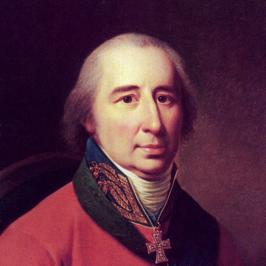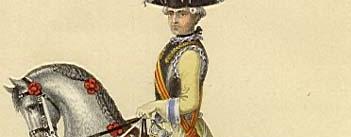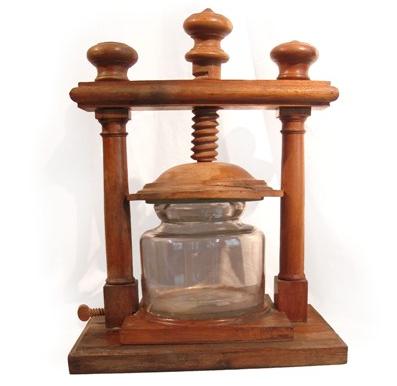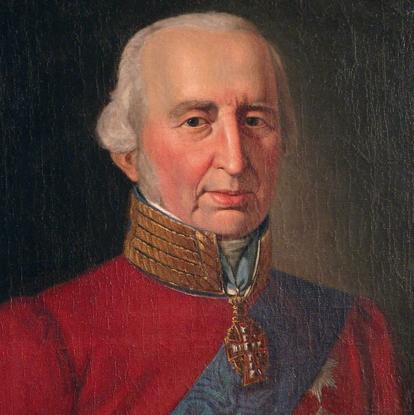ADAM WILHELM HAUCH
MILITARY MAN, COURTIER AND SCIENTIST
Adam Wilhelm Hauch was born on 26. September in 1755 I Copenhagen. His father, Andreas Hauch, had just become a major general and was well regarded at court.
It was therefore natural for Adam Wilhelm to follow his father into Military. He later in life achieved to become the Lord Chamberlain, the highest administrative post at court. But his deep passion was science. We know from his collection, from what he wrote, and his accolades.
Hauch was an impressive person. He has been described as well-liked by most, esteemed by all, intelligent, diligent, clever, dutiful, mild and good-natured when circumstances did not force him to be strict.

THE MILITARY CAREER

Hauch quickly rose in military degrees:
- Ensign as 5-year-old
- First lieutenant at the age of 10
- Lieutenant in Royal Guard
- Cavalry Master i.e. captain by the cavalry with 100-150 riders under him
- Volunteer in the Prussian army
- Major at the age of 28
Hauch had the potential for something big in the military
HIS SCIENTIFIC INTEREST
In the 1780s he followed the lecturers of professor C.G Kratzenstein in experimental physics and pharmacist Tychsen’s in chemistry. In this way and by self-study, he obtained substantial knowledge about physics and chemistry. I 1786 He got the King’s permission to leave the military. He wanted to go on a journey aboard to increase his knowledge of physics and chemistry and to buy instruments, to form a collection.
The Danish king ordered him home in 1789 to become Crown Equerry. This did not mean that Hauch abandoned his interest in science. He lectured in the collection, conducted research, wrote books and articles. This led to recognition, he joined several scientific societies and eventually became president of the Royal Danish Society of Sciences and Letters. See more about his scientific achievements in the section on the collection.

HAUCH’S FURTHER CAREER
When Hauch was made Crown Equerry in 1789 he gradually rose in the court ranks and was appointed Lord Chancellor in 1794 and finally rose to the position as Lord High Steward in 1798. He was thus given responsibility for the entire royal household. Alongside this, Hauch was behind major revisions of the Royal Collections leading to the establishment of the modern Danish National Museums. He also had a philanthropic side. He was one of the primary forces behind ‘Kjæden’, a philanthropic society emanating from the Freemasons and the creation of the ‘The Institute for the Blind’ (1811) as well as ‘The Eating Establishment for Needy in Copenhagen’ (1829).
ACCOLADERS AND POSTS
1776 Groom of the Chamber
1782 Chamberlain
1793 Grand Crossof the Order of the Dannebrog and White Knight
1794 Secretary of the College of Arms
1812 Silver Cross of the Order of the Dannebrog
1814 Lord Marchall
1817 Order of the Elephant and Blue Knight
1824 Rank of Lord President of the Privy Council
1828 Lord Chamberlain
1831 Deputy Chancelor of the College of Arms
SCIENTIFIC POSITIONS AND ACCOLADES:
1791 Member of the Royal Danish Academy of Sciences and Letters, Copenhagen
1795 Member of the Royal Norwegian Society of Sciences and Letters, Trondheim
1795 Member of the Academy of Sciences and Literature, Mainz
1796 Member of the Academy of Public Sciences, Erfurt
1796 Member of the Royal Swedish Academy of Science, Stockholm
1798 Member of the Berlin Society of Friends of Natural Science
1798 Member of the Danish Natural History Society, Copenhagen
1799 Head of the Royal Commission for Establishing a Museum of Natural Histor
1807 President of the Royal Danish Society for the Furtherance of Veterinary Knowledge
1809 Member of the Italian Society (Academy of Sciences)
1812 Member of the Academy of Sciences, Sardinia
1813 Member of the Royal Society of Medicine, Copenhagen
1821 Honorary doctorate from the University, Copenhagen
1825 Member of the Imperial Pharmaceutical Society, Sct. Petersburg
1829 Head of the Royal Danish Museum of Natural History, Copenhagen
1831 President of the Royal Danish Academy of Sciences and Letters, Copenhagen
OTHER POSTS
1789 Member of the board of directors of the Rural Stud Farms and og the Royal Venenary School
1789 First member of the board of directorsof the Royal Stud Farms
1790 Member of the board of directors for the Danish Stud Administration and the Venenary School
1794-1798 and 1800-1801 Head of the Royal Danish Theatre
1798 and 1811 Head of the Royal Danish Orchestra
1801 and 1807 Head for the Crown Prince's Guards
1802 Head of the Royal Art Collections
1802 Head of the Royal Art Museum
1803 Member of the Royal Danish Academy of Fine Arts
1803 Head of of the Royal Coin and Medal Cabinet
1803 Member of the Commission for the Construction of Christianborg Castle, Copenhagen Town Hall and Copenhagen Court House
1803 Head of of the Royal Danish Academy of Fine Arts
1807 Member of the Commission regarding the Preservation of antiquities in Denmark
1909 Member of the Academy of Fine Arts, Livorno
1811 Member of the board of directors for Royal Institute for the Blind
1820 Member of the board of the Royal Trust
1829 Head of the Royal Library
1830 Member of the board for the Society for the Promotion of Danish Literarure
THE COMMENERATIVE SPEACH
Adam Wilhelm Hauch died 26. February 1838, 83 years of age. The funeral was just as impressive as Hauch’s life. The coffin was carried by students and civil servants. The procession included princes, counts, and dukes, his family, diplomats, civil servants, scholars, artists, citizens, men of all ranks of society. In front of the hearse: lackeys, footmen and chasseurs. In Holmen's church, a cantata was sung, written by Oehlenschlæger set into music by J.P.E. Hartmann, some of the foremost national artists of his time.
In the Royal Danish Society for the Sciences and Letters, H. C. Ørsted, as the secretary, held the memorial address. He here stated:
'Hauch was of middle size, more large than small. His body was well formed and strongly built; equally distant from obesity and leanness. The face was large, with strong, manly features, in which the firmness was not lacking in gentleness. His beautiful brown expressive eyes were full of fire. His whole posture was beautiful, as one could expect of a well formed, strong body whose strength from youth had been formed by knightly exercise.
Those who cultivate the sciences with satisfaction commemorate that he was also one of them. Even on the throne and in its vicinity his memory is honored. We could end with the consoling truth that this excellent man has been acknowledged for his worth.'
